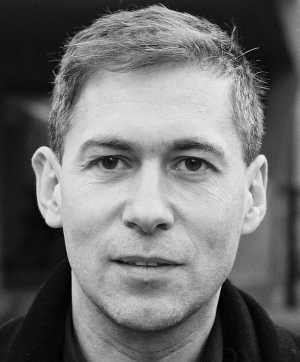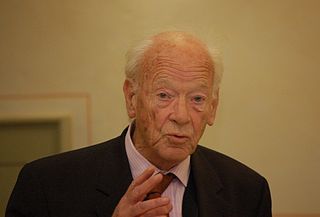
The Bavarian Academy of Sciences and Humanities is an independent public institution, located in Munich. It appoints scholars whose research has contributed considerably to the increase of knowledge within their subject. The general goal of the academy is the promotion of interdisciplinary encounters and contacts and the cooperation of representatives of different subjects.
The Gottfried Wilhelm Leibniz Prize, in short Leibniz Prize, is awarded by the German Research Foundation to "exceptional scientists and academics for their outstanding achievements in the field of research". Since 1986, up to ten prizes are awarded annually to individuals or research groups working at a research institution in Germany or at a German research institution abroad. It is considered the most important research award in Germany.

The German Academy of Sciences at Berlin, German: Deutsche Akademie der Wissenschaften zu Berlin (DAW), in 1972 renamed the Academy of Sciences of the GDR, was the most eminent research institution of East Germany.

Stefan Walter Hell HonFRMS is a Romanian-German physicist and one of the directors of the Max Planck Institute for Biophysical Chemistry in Göttingen, Germany. He received the Nobel Prize in Chemistry in 2014 "for the development of super-resolved fluorescence microscopy", together with Eric Betzig and William Moerner.

The Göttingen Academy of Sciences is the second oldest of the seven academies of sciences in Germany. It has the task of promoting research under its own auspices and in collaboration with academics in and outside Germany. It has its seat in the university town of Göttingen.

Ute Frevert is a German historian. She is a specialist in modern and contemporary German history, as well as social and gender history. In January 2008, she was appointed managing director of the Max Planck Institute for Human Development and director of the Institute's Center for History of Emotions in Berlin.

Kai A. Konrad is a German economist with his main research interest in public economics.
Helmut Schwarz is a German organic chemist. He has been a professor of chemistry at the Technische Universität Berlin since 1978. In 2018, he was elected a foreign associate of the U.S. National Academy of Sciences.

Eike Christian Hirsch was a German journalist, author and television presenter. He was host of a talk show and author of a biography about Gottfried Wilhelm Leibniz. The main themes in his books were religion, humour and German language.
Annette Zippelius is a German physicist at the University of Göttingen. In 1998 she became a Gottfried Wilhelm Leibniz Prize winner. Her research focuses on complex fluids and soft matter – materials that are intermediate between conventional liquids and solids. Examples are glasses, polymeric melts or solutions, gels and foams, but also granular matter. With her research group she aims at elucidating the underlying principles of self-organization that govern their behavior.

Rudolf Schieffer was a German historian specializing in medieval history. From 1994 to 2012 he was president of the Monumenta Germaniae Historica.
Friedrich Wilhelm Karl, Ritter von Hegel was a German historian and son of the philosopher Georg Wilhelm Friedrich Hegel. During his lifetime he was a well-known and well-reputed historian who received many awards and honours, because he was one of the major urban historians during the second half of the 19th century.
Claus-Wilhelm Canaris was a German jurist. Until his retirement in 2005 he was professor of Private Law, Commercial law and Labour law the University of Munich.

M. Rainer Lepsius was a German sociologist. A particular interest was in the work of Max Weber: he was prominent among the co-compilers of the (eventually) 47 volume edition of the Complete Works of Weber.
Erika von Mutius is a German pediatrician and allergologist at the Helmholtz Center Munich and the Ludwig-Maximilians-University of Munich. Her research interests include paediatrics, pediatric pneumology, allergology and epidemiology.
Marina V. Rodnina is a biochemist.
Ulrich Aloysius Konrad is a German musicologist and professor at the Institute for Music Research of the University of Würzburg. He is considered an expert on European music of the 17th to 20th centuries, especially the works of Mozart, Robert Schumann, Richard Wagner and Richard Strauss. He wrote a biography, Wolfgang Amadé Mozart, and studied the composer's sketches.
Frank-Rutger Hausmann is a German Romanist and historian.
Walther Killy was a German literary scholar who specialised in poetry, especially that of Friedrich Hölderlin and Georg Trakl. He taught at the Free University of Berlin, the Georg-August-Universität Göttingen, as founding rector of the University of Bremen, as visiting scholar at the University of California and Harvard University, and at the University of Bern. He became known as editor of literary encyclopedias, the Killy Literaturlexikon and the Deutsche Biographische Enzyklopädie.
Rudolf Vierhaus was a German historian who mainly researched the Early modern period. He had been a professor at the newly founded Ruhr University Bochum since 1964. From 1971, he was director of the Max-Planck-Institut für Geschichte in Göttingen. He became known for his research on the Age of Enlightenment.








